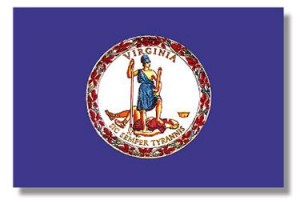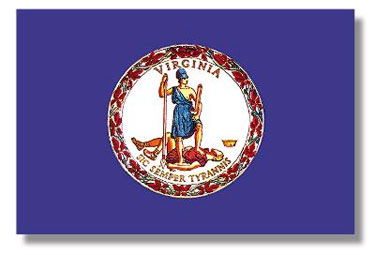Cost plus contract accounting and fraud against government entities under the Virginia Fraud Against Taxpayers Act and federal False Claims Act
Today we will talk about false claims act violations in government contracting from an accounting point of view.
I realize that only a fraction of readers are still with me after that first sentence, and that is fine by me. The simple truth is that many folks — lawyers and non-lawyers alike — do not consider accounting the most exciting of topics. I beg to differ. In fact, over the last five or six years I have come to the realization that false claims act cases involving accounting are often among the strongest cases.
As regular readers know, when I look at a potential qui tam/FCA case, I look for a claim that is objectively false. Cases concerning fraudulent accounting by a government contractor lend themselves well to proving an objective falsehood for two reasons. First, stripped of all of its complexities, accounting is nothing more or less than the preparation of business summaries and records over a certain period of time. The numbers are what they are, and once an entity decides to treat an expenditure or a income in a particular way, that bell can’t be unrung.
But accounting in and of itself is only half of the objective falsehood puzzle. The second reason accounting fraud cases lend themselves to proving an objective falsehood is that the parties have an agreed upon source of authoritative guidance in the form of the Federal Acquisition Regulations. FAR provides a (mostly) clear set of rules for contractors to follow when doing business with the United States.
Additionally, in order to obtain costs plus work in the first place a company must have an accounting system in place that is “adequate for determining costs applicable to the contract or order” as per FAR 16.301-3.
And, since about the year 2003, FAR is applicable to large health care providers (like hospitals and skilled nursing facilities) submitting annual claims for overhead reimbursement to the Center for Medicare and Medicaid Services.
Although FAR applies to roughly 80% of the federal government’s expenditures (by my estimation) the most interesting area by far is in so-called “costs plus” contracting. A “costs plus” contract is a contract in which the federal government agrees to pay the contractor for the costs incurred in the contractor’s performance of the work. The contractor is then paid its fee in addition to the costs of performance, and the fee can be calculated in one of several different ways.
All costs can be divided into two main types in the world of costs plus contracting — direct costs and indirect costs. Direct costs are those costs associated with a specific contractual or task order objective; indirect costs are all of the other costs the company incurs in running its business that are not directly attributable to a specific contract objective. For example, direct costs would be the cost of the work of employees assigned to the specific contract; indirect costs would be the contractor’s rent on their home office or factory space, costs for office supplies, the salaries and benefits of necessary but non-billable employees performing internal company work like accountants, in-house lawyers, or human resources employees.
If a small government contractor, for example, has exactly five government contracts and all of them are cost plus, a simple equation would have 20% of the company’s indirect overhead costs charged to each contract. As you might imagine, in this complicated world, the math is almost never that simple. Most companies have a combination of government work and commercial work, or they have a combination of costs plus contracts and firm fixed price contracts.
And that is often where, to quote Oliver Wendell Holmes Jr., the boy gets his finger pinched in the machinery.
Unlike a costs plus contract, a firm fixed price contract — usually abbreviated as FFP in the world of government contracting — involves the contractor performing certain work and getting paid a set price. That price includes costs and profit, and thus this type of arrangement is usually used for manufacturing smaller items that the government purchases on an on-going basis. If it is easy for a manufacturer to determine how much it costs in materials and labor to manufacture a custom-ground widget, the FFP arrangement would work well in that scenario — government and the manufacturer could reach an agreement that the US will purchase custom-ground widgets in batches of 1,000, for a set price.
Regular readers can, I am sure, see where I am going with this. A great many federal FCA cases have involved companies — often with a combination of FFP and cost plus work — that try to shift as many costs as possible from their FFP contracts to their costs plus contracts. Unlike a FFP arrangement, all costs charged to the costs plus contract will be reimbursed. So, if the contractor manufacturing custom-ground widgets can allocate the time of the employees manufacturing all those custom-ground widgets to some other contract the company has — say, a research and development contract instead of the FFP widget contract — suddenly the money for the custom-ground widgets becomes 100% profit.
And that is one the simplest examples. As you might imagine, the false claims schemes can get fairly complicated. As another example, a contractor can try to load as much of its costs as possible into an area like internal research or business development, because the cost accounting rules are a little more fuzzy for those types of internal costs.
There are also various warning signs for fraud and false claims in the contracting world. For example, if a contractor’s employees work fewer hours on FFP production contracts and more hours on cost plus contracts in the third and fourth quarters of every year, that is a dead giveaway, especially if the employees work a consistent amount of hours on commercial contracts.
And these are just a couple of simple examples — as with other areas of fraud and false claims, the examples are limited only the human imagination.

